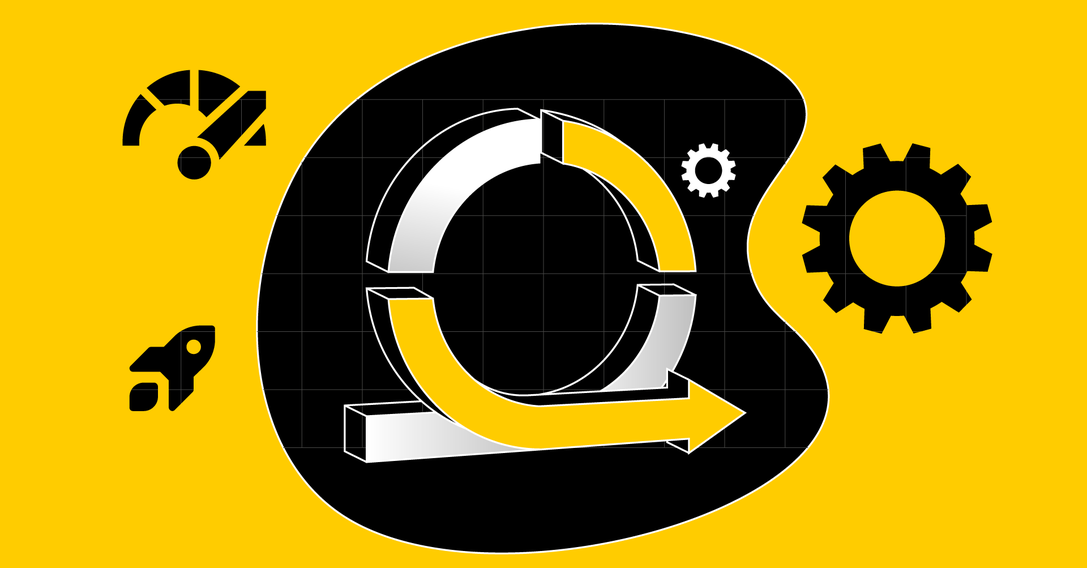4 min
May 26, 2025
A Day in the Life of an IT Project Manager – Key Aspects of the Job
The work of a Project Manager (PM) in the IT industry is a fascinating yet demanding challenge. Daily life in this role involves continuous coordination of team activities, project management, communication with Clients, and ensuring tasks are completed on time and to a high quality.
Listen to the audio version of this article.
Morning Ritual – Planning and Organizing the Day
The Project Manager's day begins with a review of their calendar and to-do list. This is the time to check scheduled meetings, upcoming deadlines, implementation schedules, and priorities. A quick scan of emails helps to catch urgent matters requiring immediate attention. Especially when a PM manages several projects, effective daily planning is crucial to avoid overload and complete tasks on time.
An important element is also to leave breaks between meetings – this helps prevent delays and provides time to prepare for subsequent calls or tasks, and to communicate key decisions to the project team.
Daily Team Meetings – The Agile Ritual
In an IT PM's work, Agile methodologies are often applied, where short, daily meetings (daily stand-ups) are standard. They last around 15 minutes and are used to discuss progress, plans for the day, and any obstacles that might be blocking work. This keeps the team up-to-date, and the PM can quickly react to problems, adjust priorities, and efficiently manage the team.
Such meetings build transparency and a sense of community, which positively impacts team motivation and effectiveness.
Transparency and Communication – The Foundations of Effective Management
A PM ensures that all team members and clients are fully aware of the project's status, priorities, and potential risks. Transparency prevents misunderstandings, wasted resources, and a drop in engagement. Regular reporting and open communication with the client, the team, and management are essential to keeping the project on track.
Client Meetings – Key to Project Success
Throughout the day, the PM organizes and leads meetings with clients, the marketing department, sales, suppliers, and management. This is an opportunity to discuss progress, gather requirements, present sprint results, and negotiate resources and budget. Regular contact allows for quickly identifying and resolving problems, as well as building client trust and satisfaction. They also maintain open communication, encouraging the sharing of ideas and suggestions, which fosters creativity and innovation. Furthermore, regular retrospectives allow for analyzing past actions and implementing improvements in the work process.
Risk management & monitoring developments
One of the most important duties of a PM (Project Manager) is proactive risk management—identifying potential threats and minimizing their impact on the project. Tools such as Kanban boards and project management systems (Jira, Trello, Asana) are used for this purpose.
Progress is monitored using KPIs (Key Performance Indicators) and metrics, which help identify delays and initiate corrective actions. Regular analysis of this data allows for a continuous assessment of the effectiveness of activities and the success of implemented strategies. This enables teams to react quickly to emerging problems, introduce necessary changes, and optimize processes.
It is also important that indicators are clearly defined and tailored to the organization's goals. They should cover various aspects of activity, such as operational efficiency, service quality, customer satisfaction, or profitability. By establishing appropriate KPIs, organizations can effectively track progress toward their strategic goals.
Additionally, regular reporting and communication of results with the team help increase employee engagement and build a culture of continuous improvement. It also allows for a better understanding of how individual units and teams contribute to the overall organizational results. As a result, progress monitoring becomes not only an evaluation tool but also a key element supporting development and innovation within the company.
Developing and motivating the team
PM handles not only the implementation of project goals but also the development and satisfaction of the team. They organize feedback sessions, training, and workshops that help improve skills and maintain a high level of motivation. As a result, the team is engaged, and the project proceeds more smoothly. Supporting team development is a key element of effective project management. A PM ensures that every team member has the opportunity to express their ideas and opinions, which fosters creativity and innovation. Regular team meetings allow for the exchange of experiences and building trust among members.
Additionally, a PM tries to tailor tasks to the individual skills and interests of team members, which not only increases work efficiency but also impacts job satisfaction. Introducing flexibility in the approach to work, for example, through the possibility of remote work or flexible working hours, also contributes to the team's well-being.
Project management is not only about achieving set goals but also about caring for the work atmosphere and interpersonal relationships. A PM who can listen and respond to the needs of their team creates an environment conducive to cooperation and openness. As a result, the team becomes more resilient to challenges and better prepared to deal with difficulties, which translates into the success of the entire project.
Sprint Planning and Retrospectives
In the Agile methodology, a PM organizes sprint planning sessions to set tasks and priorities for the upcoming period (usually 1–4 weeks). After the sprint concludes, retrospectives are held—meetings where the team analyzes successes and problems to introduce improvements in subsequent iterations.
Summing up the day - musings & preparing for tomorrow
At the end of the day, a PM reviews completed tasks, ensures that the most important issues have been handled, and plans actions for the next day. This is the time to write down new tasks and reflect on what can be improved.
Working as an IT Project Manager: in short
The work of an IT Project Manager is a dynamic and multifaceted challenge that requires excellent organizational skills, communication, and the ability to solve problems quickly. The daily rhythm of their work is based on planning, transparent communication, progress monitoring, and caring for the team's development. Thanks to this, project implementation becomes effective and satisfying for the PM, the entire team, and the client.
If you are interested in a career in IT project management, you should develop both technical competencies and soft interpersonal skills, as well as learn about tools that support effective project management. It is a fascinating path full of challenges and opportunities for development!




